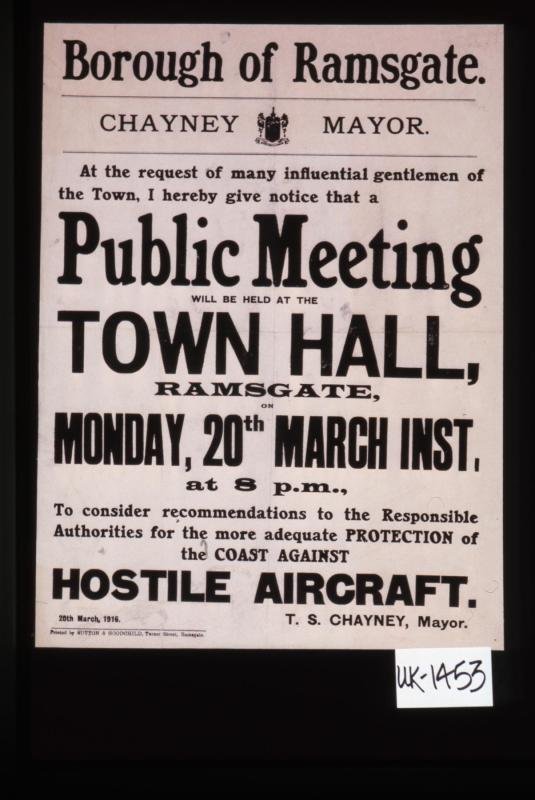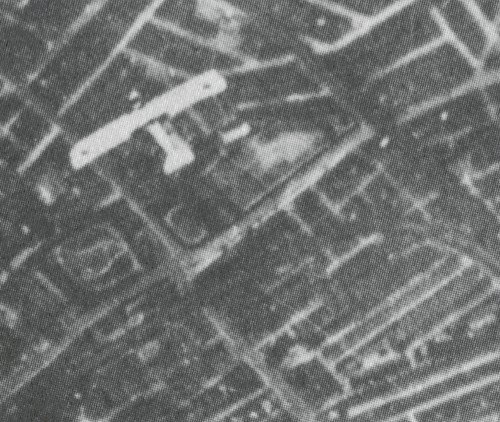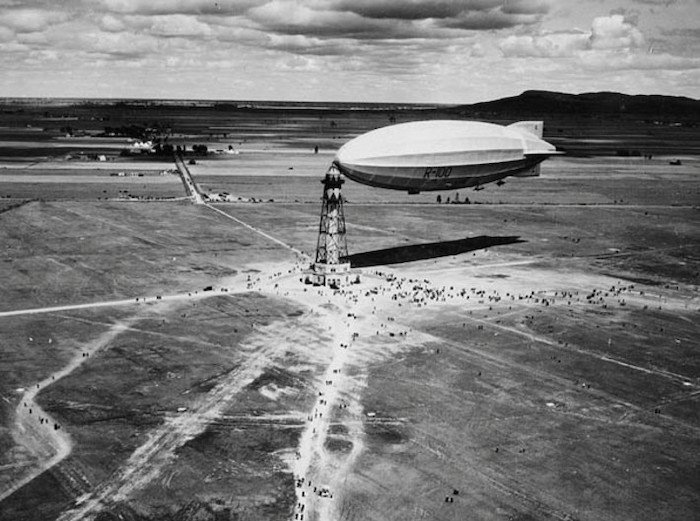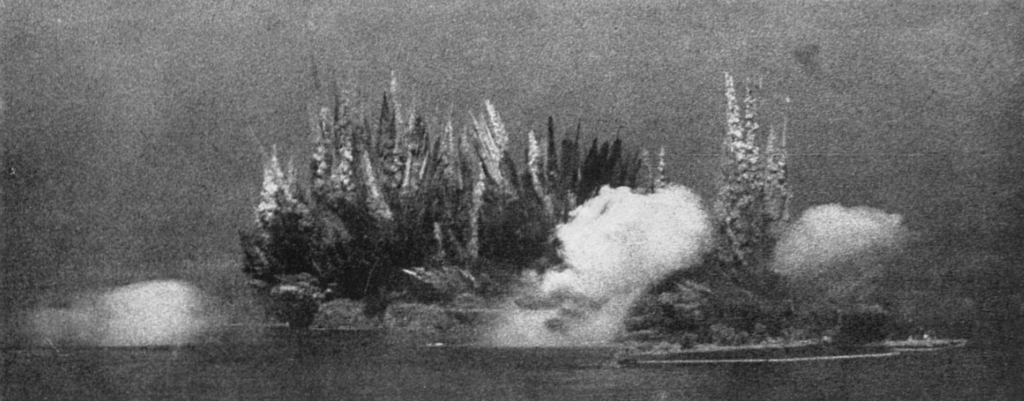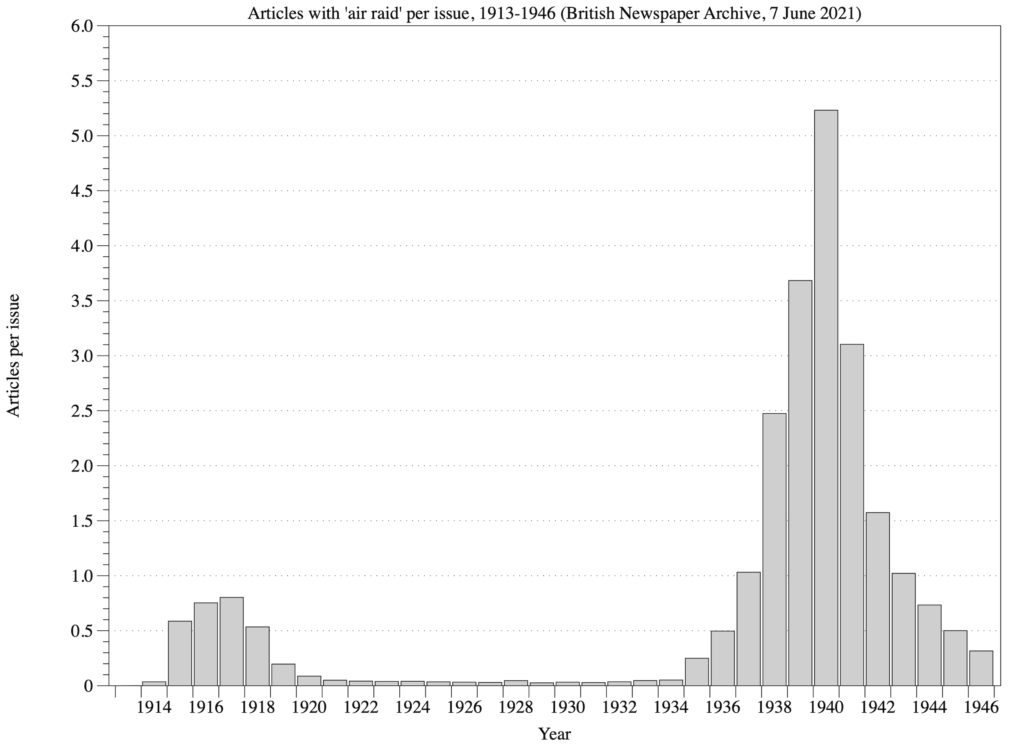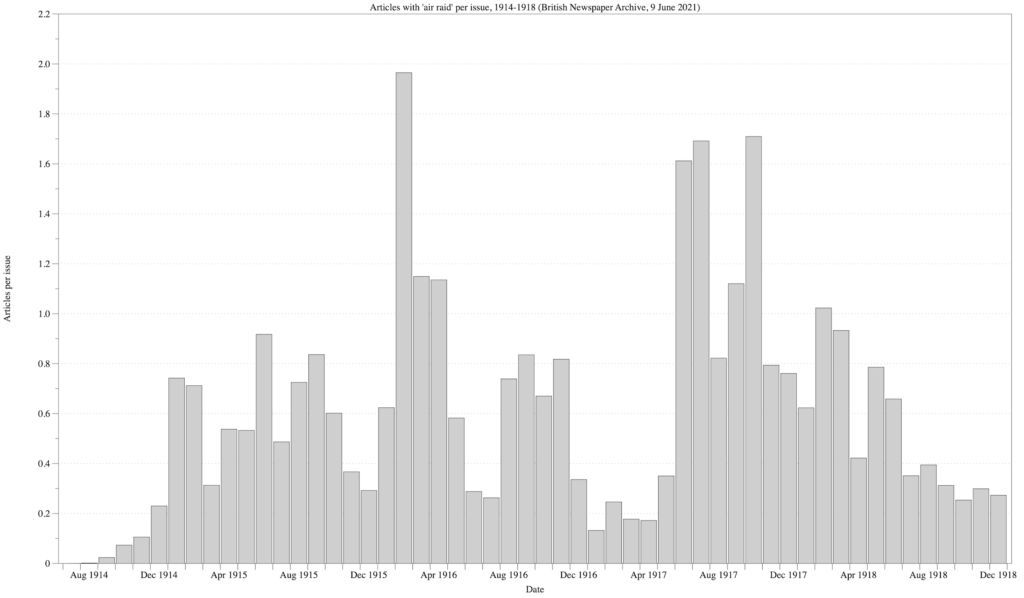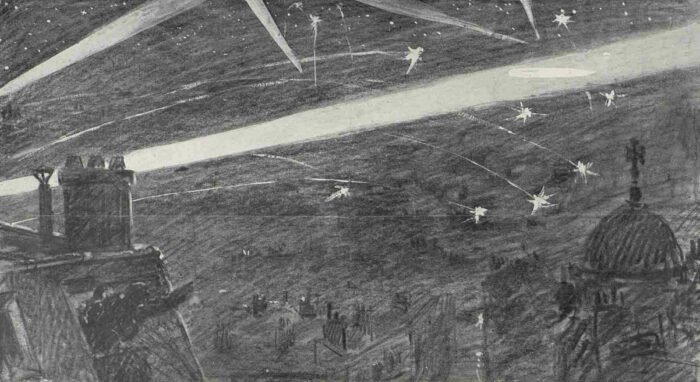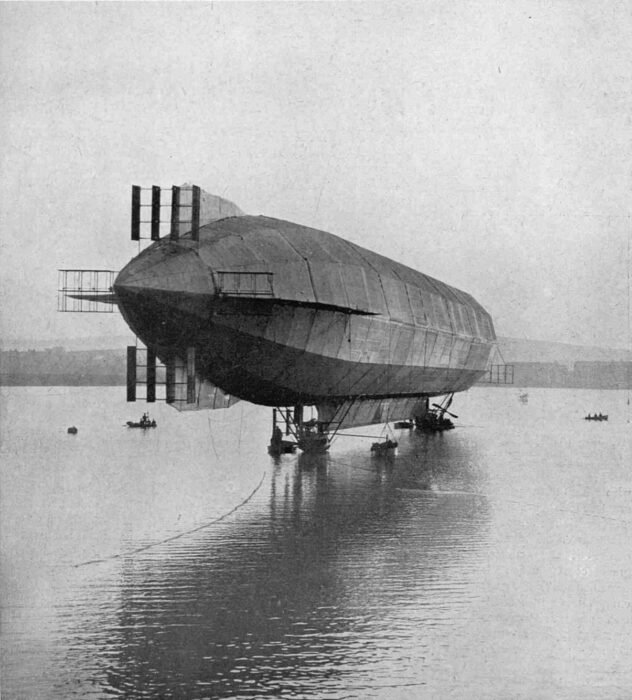The First Blitz? – III
In the previous post, I discussed some of my objections to the idea that the air raids on Britain in the FIrst World were the ‘First Blitz’. I don’t think my arguments were completely persuasive, even to myself (which is why I decided to work through them in public like this). But I ended by […]


![German propaganda poster with a vibrant and striking image depicting swarms of British aircraft bombing an industrial site to illustrate the following quote, by British Labour Leader Johnston Hicks [sic], which appeared in the 'Daily Telegraph' on January 3rd 1918: 'One must bomb the Rhineland industrial regions with one hundred aircraft day after day, until the treatment has had its effect!’](https://airminded.org/wp-content/uploads/2024/03/artv05099.jpg)
